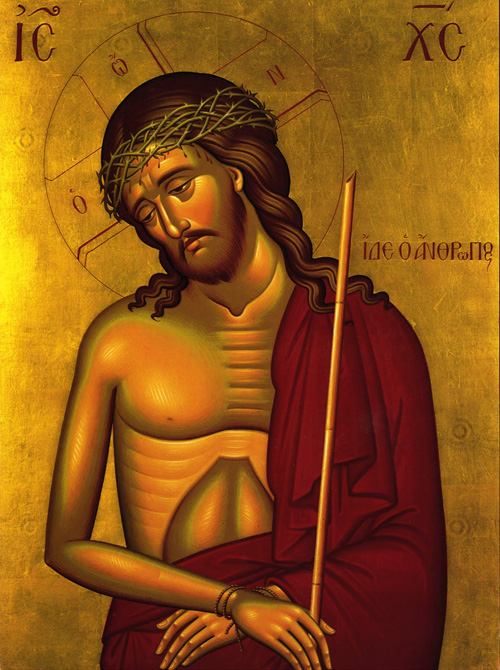 Christ the Bridegroom is the central figure in the parable of the ten Virgins (Matthew 25: 1-13); Christ is the divine Bridegroom of the Church as described in the Book of Isaiah (chapter 54), as well as the primary image of Bridegroom Matins.
Christ the Bridegroom is the central figure in the parable of the ten Virgins (Matthew 25: 1-13); Christ is the divine Bridegroom of the Church as described in the Book of Isaiah (chapter 54), as well as the primary image of Bridegroom Matins.
The title is suggestive of His divine presence and watchfulness (“Behold the Bridegroom comes in the middle of the night…”) during Holy Week and His selfless love for His Bride, the Church.
The Troparion
Behold the Bridegroom comes at midnight, and blessed is the servant whom he shall find watching, and unworthy is the servant whom he shall find heedless.
Beware, therefore, oh my soul. Do not be weighed down with sleep, lest you be given up to death, and lest you be shut out of the kingdom.
But rouse yourself, crying, Holy, Holy, Holy are Thou our God.
Through the Theotokos, have mercy on us. [Read more…]
![]()

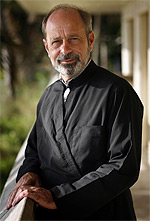
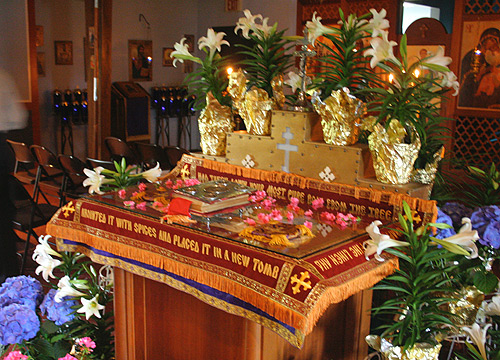 On Friday night, the Matins of Holy and Great Saturday, a unique service known as the The Lamentations at the Tomb (Epitáphios Thrēnos) is celebrated. This service is also sometimes called Jerusalem Matins. Much of the service takes place around the tomb of Christ in the center of the nave. A unique feature of the service is the chanting of the Lamentations or Praises (Enkōmia), which consist of verses chanted by the clergy interspersed between the verses of Psalm 119 (which is, by far, the longest psalm in the Bible).
On Friday night, the Matins of Holy and Great Saturday, a unique service known as the The Lamentations at the Tomb (Epitáphios Thrēnos) is celebrated. This service is also sometimes called Jerusalem Matins. Much of the service takes place around the tomb of Christ in the center of the nave. A unique feature of the service is the chanting of the Lamentations or Praises (Enkōmia), which consist of verses chanted by the clergy interspersed between the verses of Psalm 119 (which is, by far, the longest psalm in the Bible).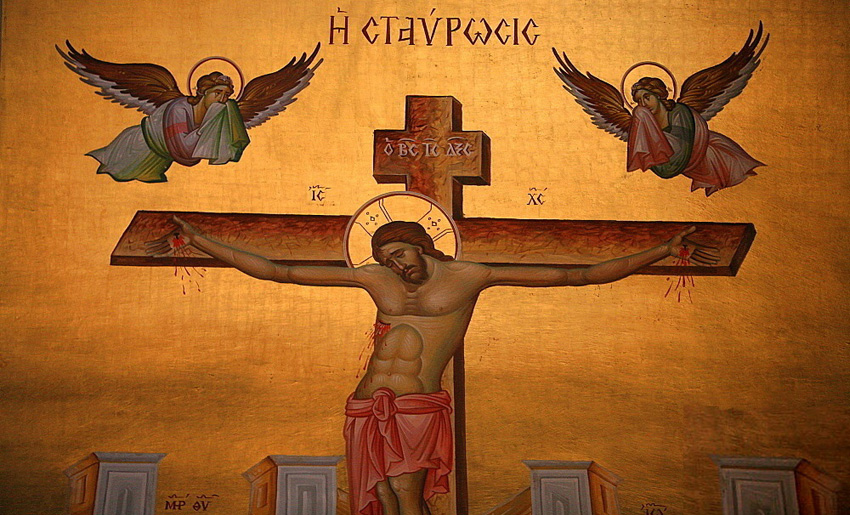
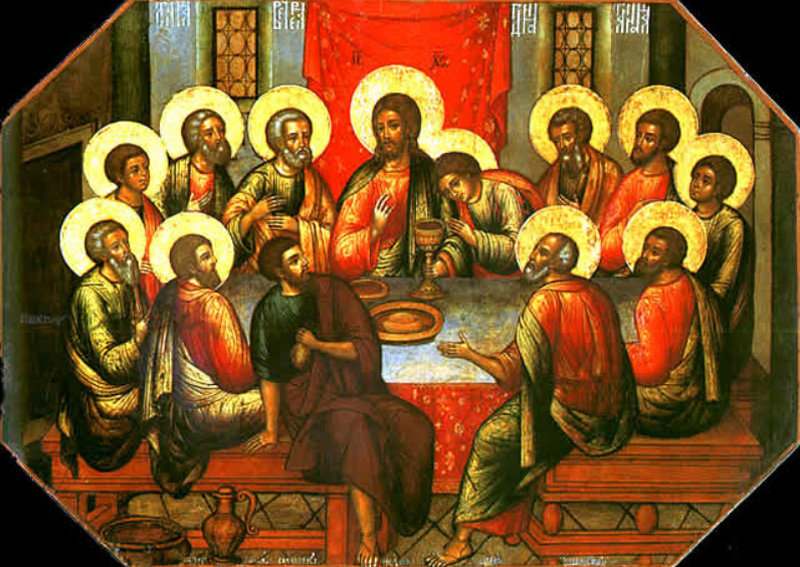 Holy Thursday begins with the celebration of vespers and the Divine Liturgy of St. Basil with a Reserved Eucharist in representation of the earthly presence of Christ realized at the Last Supper.
Holy Thursday begins with the celebration of vespers and the Divine Liturgy of St. Basil with a Reserved Eucharist in representation of the earthly presence of Christ realized at the Last Supper. Christ the Bridegroom is the central figure in the parable of the ten Virgins (Matthew 25: 1-13); Christ is the divine Bridegroom of the Church as described in the Book of Isaiah (chapter 54), as well as the primary image of Bridegroom Matins.
Christ the Bridegroom is the central figure in the parable of the ten Virgins (Matthew 25: 1-13); Christ is the divine Bridegroom of the Church as described in the Book of Isaiah (chapter 54), as well as the primary image of Bridegroom Matins.